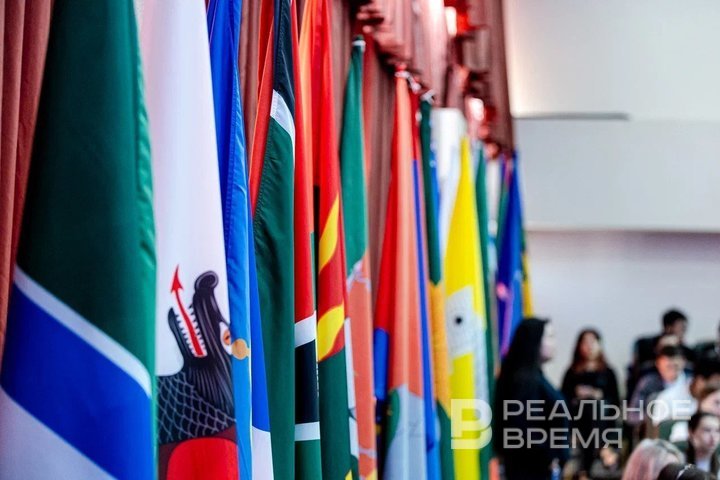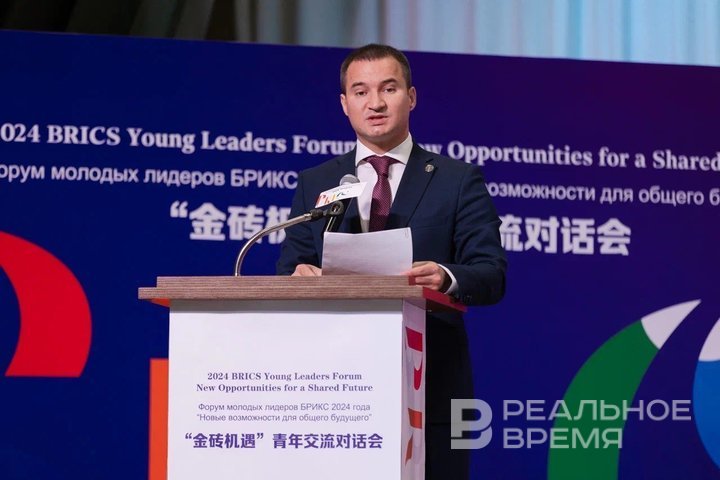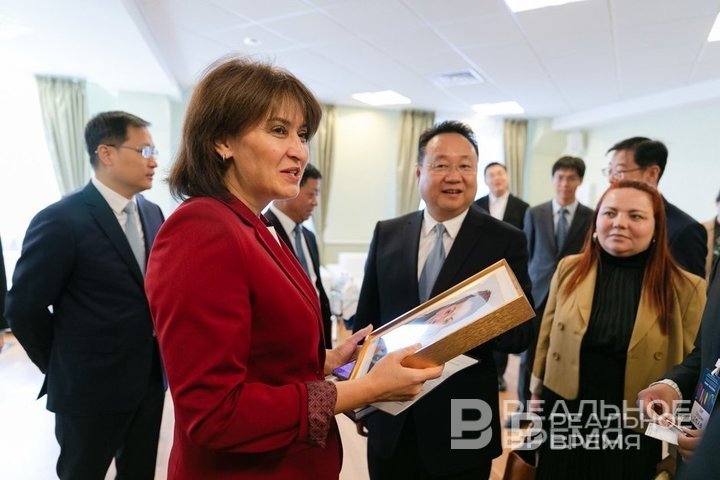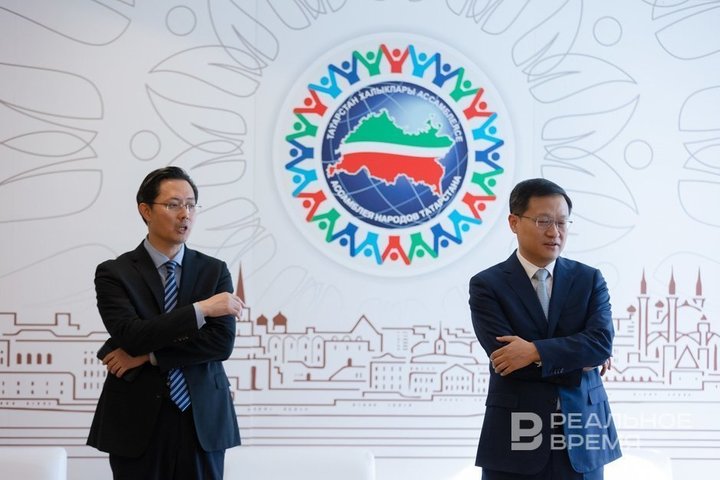Live dialogue and social media. How to develop international youth relations?

3 priority areas of Tatarstan
Tatarstan's youth policy is structured in three main areas — infrastructure, personnel and the activity of the youth themselves. Such points were presented by Minister of Youth Affairs of the republic Rinat Sadykov at the BRICS 2024 Forum of young leaders New Opportunities For Common Future in Kazan.
“Of course, modern infrastructure plays a significant role in the process of self-realisation for young people. It is the infrastructure demanded by the youth itself that is the basic factor that determines the conditions for its development and activity. Today, there are about 387 youth policy institutions in Tatarstan — these are centres, clubs for teenagers, centres for psychological and pedagogical support for children and youth, children's health camps and bases. Tatarstan holds a leading position in the country in terms of institutions in the field of youth policy," he said.

As for the second priority, competent personnel, more than 3,500 teachers and youth specialists work in the republic. And every year, according to Sadykov, Tatarstan tries to improve the conditions for their activities.
“The third priority for us is the inclusion of young people themselves in the implementation of projects and government programs within Tatarstan and Russia as a whole. First of all, youth public associations and organisations play an important role here. We are implementing this task together with more than 50 social movements and organisations," the minister said.
Sadykov also touched upon the topic of cooperation in the field of youth policy with the BRICS+ member countries. According to him, direct contacts between young representatives of the states are the best tool for exchanging experience in this area:
“The simplest and most effective is, of course, a live dialogue. These are live exchanges, at least visits to countries so that Chinese youth come to Russia and Russian students visit the provinces of China. I am sure that this is the basic level from which we should start. Then there is the economy, and entrepreneurship, and culture, and education, and so on.”
Deputy Prime Minister of Tatarstan Leyla Fazleeva also supported the point:
“We are confident in the need for further development of international cooperation. It is important to continue working consistently: to expand relations both in the economy and in culture, sports, education, and youth policy based on our traditional values.

Most important thing is to get rid of stereotypes
A round table discussion with the participation of speakers in the field of youth policy was also held within the framework of the forum. The main topic of the conversation was the strengthening of ties between young people from different BRICS countries.
“First of all, we need to get rid of the stereotypes that representatives of different countries have towards each other. It's my first time in Russia, and Russian culture, cuisine, people... I didn't expect everything to be so great: the people are friendly, the cuisine is delicious. <...> The most important thing is to connect with people, connect with each other," says Iranian blogger Delhasteh Abalfazl.
Other participants in the discussions also spoke about the need to fight stereotypes. Thus, the winner of the second prize in the final of the All-Chinese Russian Language Competition, Li Yunqing, spoke about the development of a new platform on the basis of which citizens of different countries could talk more about their culture and set up conversation clubs.

At this point, the speakers came to the conclusion that one of the most effective tools in the fight against stereotypes are social networks, because through them people can demonstrate their culture.
“Today, more than 80% of the world's youth receive information from social networks — today it is the main source of information for us. It is necessary to bring the BRICS agenda to these platforms so that young people take an active part in this online, so that they invite others to join," says Alina Valieva, an enthusiast for Asia-Pacific Economic Cooperation.
Delhasteh Abalfazl also cited a concrete example in which social networks can really bring together young people from different BRICS countries:
“Look at the relations between Iran and China. The governments of the countries actively cooperate, they have good relations. But communication between our people is poorly developed. And social media can help here. P2P — people to people. It is necessary that communication between people takes place directly.